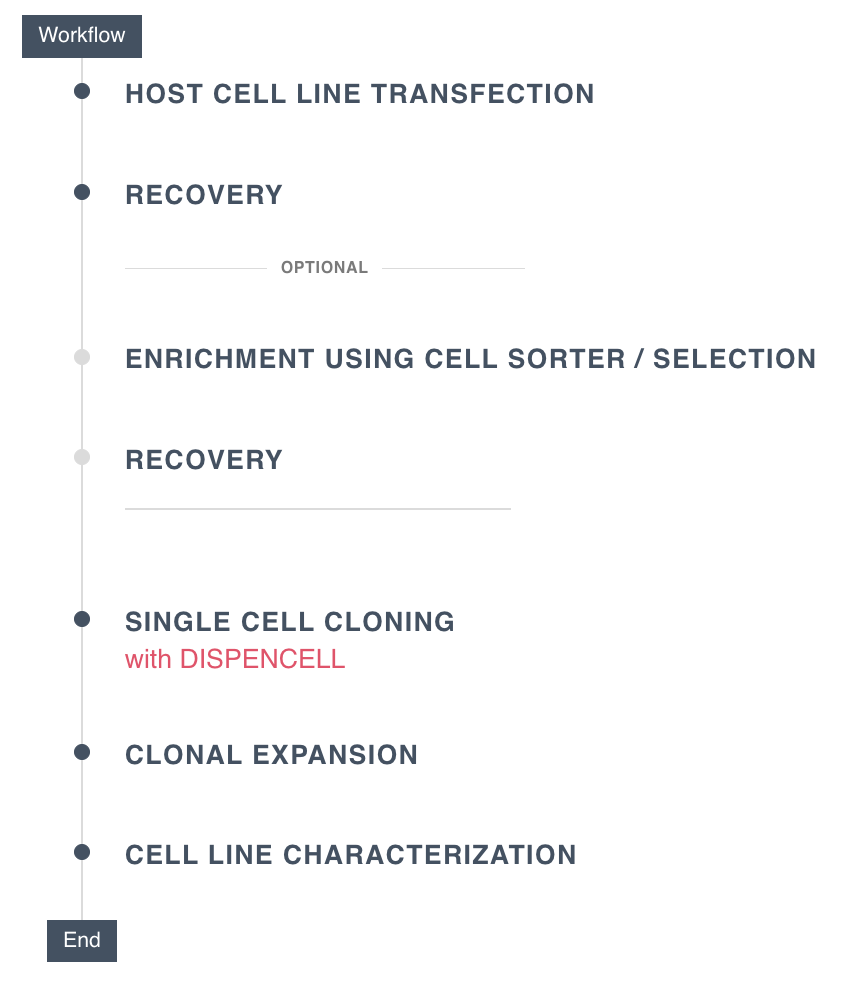
Cell line development
Monoclonality Assurance.
Cell line development is a critical step in the process of generating biotherapeutics. After transfection of the host cell line with the recombinant transgene, hundreds of clones are screened to isolate the rare high producer cells. A cell line is further established following the isolation of a clone robustly expressing the protein of interest. When developing cell lines for biotherapeutics, it is crucial from a quality and regulatory perspective to ensure that the cell line originates from a single progenitor and is therefore monoclonal. A key milestone in the process of single cell seeding is documenting evidence of monoclonality. Because available methods do not provide fully traceable cells yet, companies may waste up to 50 weeks in clonal validation.
Workflow.
Using DispenCell, it is possible to clone CHO cells or other industrial cell lines shortly after transfection, thus maintaining high producer cells. Alternatively, it is possible to first enrich the cell pool in producing cells using cell sorters or selection procedures. In this case, sorted cells can be allowed to recover before they are cloned with DispenCell.
Benefits.
In such a workflow, DispenCell’s gentle cell seeding system allows high cell viability and outgrowth, yet higher efficiency than limiting dilution. DispenCell is easy to use with no calibration or maintenance required. A proof of clonality report offers an immediate monoclonality assurance.
Read our application note of DispenCell in a cell line development workflow.
DISPENCELL All-in-One: Industrial Validation for Cell Line Development
In collaboration with Biotech Process Sciences, Merck Biopharma, Corsier-sur-Vevey, Switzerland. Oct, 2021.
Download
Thank you for your interest in this resource.
To download the resource, please complete your details.